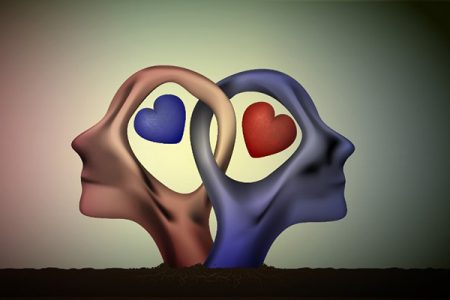feelings
Helping Children Navigate Divorce
 When parents get divorced it is always difficult for the entire family. Navigating through this time is usually challenging. There is also no manual or guidebook for how to do things the right way, so parents have to figure it out as they go.
When parents get divorced it is always difficult for the entire family. Navigating through this time is usually challenging. There is also no manual or guidebook for how to do things the right way, so parents have to figure it out as they go.
Same with the children. It can be very scary for them not knowing what to expect and sometimes feeling obligated to take sides. It can be a very sad, stressful time for children, especially when parents are so caught up in their disputes and drama that they lose sight of what is best for their kids. The kids are not the ones getting the divorce.
However, I believe most parents really do try to do their best to soften the blow and make it work for everyone involved.
Children tend to want to please their parents and not cause further upset. So, tend to not speak up. They sometimes suppress their feelings of hurt, resentment or fear. Sometime children feel like they need to choose one parent over another.
Everyone needs to feel they are being heard and their needs considered. It is therefore best to listen to all sides before making decisions. Going through this process can be tricky. You do not want your child to feel neglected or abandoned in the process.
Understanding your children’s needs and feelings, and dealing with it, is the first step into helping your child get through it with the least amount of trauma. If a parent finds this difficult to ascertain, then it is wise for them to get some professional help and guidance.
How To Truly Let Them Go
 When a relationship ends, we may find it very difficult to let go of the other person, especially when they have been the one who chose to leave. Friends and clients have often asked me this question. How do I forget him? How do I stop thinking about her? I have asked myself this a few times in my own life too.
When a relationship ends, we may find it very difficult to let go of the other person, especially when they have been the one who chose to leave. Friends and clients have often asked me this question. How do I forget him? How do I stop thinking about her? I have asked myself this a few times in my own life too.
My psychic observation has been that consciously trying to forget someone for whom we have strong feelings of love and affection will only serve to make it worse. ‘Forgetting’ someone we love is unnatural and goes against our grain. It only creates resistance that further increases tension and intensifies our pain.
So, it is usually better, but not easier, to channel or process our feelings of love and affection for another soul, in a more constructive, liberating way. This includes honoring the freedom of every soul’s path in relationship with God, Source, Spirit, the Divine.
It is essential to let our feelings flow, because emotions are energy in motion (e-motion). The energy will move through and in time lessen, like storm clouds passing through the sky, until the sun is visible to the eyes again.
Keeping the heart open is an important part of this process. The vision God gives me to describe this is of being in your home, going about your own life within it, with all your attention focused on the activities, surroundings, and experiences of the moment, and simply being present with what you have and what is, while the front door remains open in the background.
The Happiness Trinity
 When a new year arrives, it is common for us to look back and wish we had done better in the previous year. To make matters worse, the past three years have been exceptionally difficult for all of us. All the more reason for us to now make a determined decision to strive for greater happiness in the coming year. But how does one achieve happiness?
When a new year arrives, it is common for us to look back and wish we had done better in the previous year. To make matters worse, the past three years have been exceptionally difficult for all of us. All the more reason for us to now make a determined decision to strive for greater happiness in the coming year. But how does one achieve happiness?
The true nature of happiness has been a topic of debate since the beginning of time. Does anyone really know what true happiness is? There are many opinions, views and theories on the matter, but I believe in the end one’s personal happiness is something only you can truly define or measure for yourself.
With that said, no matter what our personal idea of true happiness might be, it will always require the foundation of three key elements: wellness of body, mind and soul. Without an optimal trinity of physical, mental, and spiritual health, one cannot truly live your best life.
A happy life begins first and foremost with physical health and self-care. Our lifestyle habits define the quality of our life. Constantly indulging in the short-term pleasures of unhealthy lifestyle choices will not ensure a happy life in the long-term. Happy people eat nutritious food, get enough exercise, sleep well, manage their stress levels, and aim to maintain a sensible work-life balance.
A sense of being happy itself is one of the countless emotions we experience in life, and while it’s not possible to always feel happy, we can still choose how we respond to life’s challenges. Choosing to see a difficult situation as an opportunity rather than an obstacle, and choosing faith over fear, are common traits among many accomplished people.
Love Is The Energy That Connects Souls
 There is one great metaphysical force or energy that connects us all. This greatest force is love. Love is the only energy that can truly overcome all and heal all. It connects us to each other – even those that we cannot be with.
There is one great metaphysical force or energy that connects us all. This greatest force is love. Love is the only energy that can truly overcome all and heal all. It connects us to each other – even those that we cannot be with.
Have you ever experienced the phone ringing and you just knew who it was on the other end before you even picked up? Then, once you had said hello, you think to yourself, “How did I know it was her calling?” You even get goose bumps once your intuition is confirmed. It’s a neat feeling, isn’t it?
Well, it’s also like that when out of the blue we think of someone for no reason. It’s usually because that person is also thinking of us. We are all connected.
We have naturally have what it takes to make these connections happen. One of the ingredients that it takes to be ‘dialed in’ like that is balance. We need to have balance in our lives. If we are disconnected and out of alignment in our lives we are not tuned in very well to these energetic connections we have with others. This is especially true when we indulge in some form of substance abuse, like smoking, alcohol or drugs. These things can really mess with the mind, body and soul.
You need to be healthy and you need to meditate or pray on a regular basis to help you stay on the vibrational frequency that you need to be to receive intuitive impressions, thoughts and feelings from those you love.
It is very difficult to be able to hear someone or feel someone, and love them so much and want to be with them so much, and not be able to. Know that if you are feeling these things from those you love you are very much connected. Remember, sometimes we have to wait to be with that person physically, because it’s all in divine timing – not our own timing.
True Love Is Never-Ending
 I love you. I love you, and you, and you! No matter what happened yesterday. No matter what was said, what was done, how we hurt one another, I still love you.
I love you. I love you, and you, and you! No matter what happened yesterday. No matter what was said, what was done, how we hurt one another, I still love you.
Three simple words. Really, love shouldn’t be so hard. Since my childhood my goal in life was always to show love. Before money, before “common sense”, before logical reasoning of life, my heart always took the lead. Believe me, this trait has led to much criticism over the years. Many people have considered me eccentric, crazy, even downright stupid. Yet, throughout the years, I learned to like myself and to accept others.
Perhaps I’m not the wealthiest woman in the world, with diamonds dripping off my neck. Perhaps I give away more than I keep. Yet, each night I go to sleep soundly, liking who I am. I can dance in the moonlight with the fairies under the kisses of Venus, with Lady Moon shining her soft glowing light through the country rural trees, the shadows of leaving dancing around creating the sense of those long gone flitting in and out of the corners of our eyes.
The answer is love.
Today is a new day, where spirit sends to me more people to love. It’s just that easy. I simply let the problems and failed actions of yesterday go, remembering the lessons I had to learn in how to treat others. We are all human who make mistakes in how we express ourselves, in how we react, but we can always choose restore the love. All we need is unconditional love, and forgiveness.
For many of us there is the constant hope of one day meeting a life partner who ‘gets’ us, with all our flaws, all our doubts, all our insecurities. This task of finding just the right one is not easy. Some seek advice from us seers, who give answers, but sometimes the bottom falls out. One of us, or both of us do something really stupid, and the love ends. This is what we believe. But love doesn’t end.
How To Develop Your Intuition
 We all have access to spiritual inner guidance in the form of our intuition, and the more we pay attention to it, the stronger it will become. Intuition is like a muscle, so the more we develop it, the stronger it becomes.
We all have access to spiritual inner guidance in the form of our intuition, and the more we pay attention to it, the stronger it will become. Intuition is like a muscle, so the more we develop it, the stronger it becomes.
The following strategies can help to hone your intuitive abilities and learn to better listen to your powerful ‘sixth sense.’ Use these strategies to help you to tune into your inner wisdom and develop your relationship with your intuitive guidance. Intuition is a soul awareness that we are all born with and the more we engage with it, the stronger it will become for us.
Awareness
Intuition is a very low key, subliminal form of awareness. It is not highly charged like our emotions tend to be, and so it can easily go unnoticed.
Intuition for people who are less aware usually is only noticed when it presents as an uneasy sensation or a foreboding feeling. It can be difficult to put your finger on exactly what the sensation or feeling is. Intuition can also be a ‘knowing’ without any sensation or feeling.
The first step to begin working with your intuition is to pay more attention to it! So, when you have that tell-tale sensation or subtle feeling, or that vague sense of knowing, focus on being more present with it. Ask yourself questions about what you are experiencing.
For example, if it’s a knowing, does it come with any other sensations or feelings in your body? If so, where do you sense it in the body? What does it feel like? Emotions tend to be very pronounced and charged.
Only You Can Heal A Recurring Emotional Injury
 We are all negatively impacted at times by certain events or people causing us emotional hurt and trauma.
We are all negatively impacted at times by certain events or people causing us emotional hurt and trauma.
If this is something that is currently weighing on your mind and you feel emotionally injured or overwhelmed today, then the following strategies may help you to overcome the recent setback you suffered.
Not only can these three steps help you to better deal with your current emotional injury, but it can also bring about lasting positive change in your life.
Step 1: Feeling Through
It is vital to process negative emotions. You should never try to suppress or repress unpleasant feelings. It is important that you allow yourself to fully feel your current emotion. Don’t think or rationalize, just feel.
Let the tears of sadness flow, lean into the fear or anxious feelings, or embrace the anger and disappointed. To process and ultimately resolve these feelings, we must first truly feel them.
However, do not spend too much time in this stage of the process. Truly feeling your negative emotions does not mean you must obsess over it or constantly dwell on it. A few hours, or at most a day or two, then let it go! Do not let it drag on for weeks or months, because this will not heal you and will only have a counterproductive effect. After the one-time ‘feeling through’, it is time to move on to the next stage.